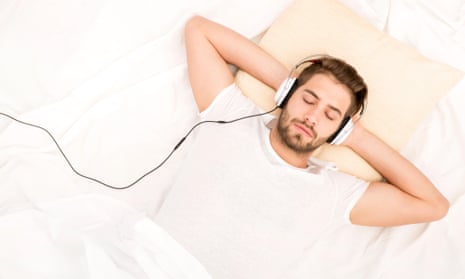In Aldous Huxley’s Brave New World, the overlords use “sleep teaching” to condition children to submit to their sinister moral values. Now scientists have found a more noble purpose for the technique in a study that suggests deep-rooted biases about race and gender could be “unlearnt” during a short nap.
The findings appear to confirm the idea that sleeping provides a unique window for accessing and altering fundamental beliefs – even prejudices that we don’t know we have.
Simply playing auditory cues while people slept partially undid racial and gender bias, the study found, and the effects were still evident at least a week later.
Xiaoqing Hu, who led the study at Northwestern University, said the strength of the results were surprising. “The usual expectation is that a brief, one-time intervention is not strong enough to have a lasting influence,” he said.
Distinct from overt sexism or racism, the study targeted so-called implicit biases, that can shade the way we respond to others. Project Implicit, a long-running online project by Harvard psychologists, has shown that 80% of people have a bias against the elderly, for instance, and that people often have a preference for white faces over black faces.
Other research has revealed that these biases can have consequences – when playing a video game with instructions to shoot only people carrying weapons, players are more likely to shoot unarmed black targets. Another study showed that professors writing recommendation letters were more likely to introduce an element of doubt about junior female researchers than male ones - potentially skewing their chances of employment.
“These biases are well-learned,” said Hu. “They can operate efficiently even when we have the good intention to avoid such biases. Moreover, we are often not aware of their influences on our behaviour.”
The study, published in Science, began with two Pavlovian-style conditioning exercises designed to counter race and gender biases. In the first, participants were shown female faces with words linked to maths or science and in the second, black faces appeared with pleasant words.
During the tasks, two distinctive sounds were played - one that came to be strongly associated with the gender pairs and the other with the race pairs.
Following the training, participants took a 90 minute nap and once they entered a deep sleep, without their knowledge, one of the sounds was played repeatedly.
After the counter-bias training exercise, and before the nap, people’s bias tended to have fallen, but without the extra cues during sleep, their level of bias had almost recovered to baseline after the nap. However, when participants were played the sound cues during sleep, their bias scores reduced by a further 56% compared to their pre-sleep score. Their scores remained reduced by around 20% compared to their initial baseline when the participants were tested one week later.
The authors acknowledge that further experiments are needed to test how long the effect endures beyond the one-week mark and whether it translates into changes in behaviour.
“Producing lasting changes in implicit biases is challenging,” said Galen Bodenhausen, professor of psychology at Northwestern, who also co-authored the study. “These biases arise from long-term socialisation, and they are frequently reinforced by the mass media.”
In a commentary accompanying the paper, two other psychologists, Gordon Feld and Jan Born, write: “The findings highlight the breadth of possible applications to permanently modify any unwanted behaviour by targeted memory reactivation during sleep.”
However, they caution that the use of the technique in future would need strict ethical guidelines. “Sleep is a state in which the individual is without wilful consciousness and therefore vulnerable to suggestion,” they add.
Scientists believe the technique works because we consolidate memories by replaying them during sleep and transferring the information from the brain’s temporary storage to long-term memory. Hearing the distinctive sound would trigger the memory to be replayed repeatedly, the scientists said, enhancing the learning process.
Ken Paller, the paper’s senior author and a professor of psychology at Northwestern, said: “We call this Targeted Memory Reactivation, because the sounds played during sleep could produce relatively better memory for information cued during sleep compared to information not cued during sleep.
Hu said the findings could provide a new way for people to actively discourage their own prejudices. “In real life, people are using strategies to avoid the influence of such biases,” he said. “For instance, to have gender or race not indicated on applications during a review. Instead of correcting or avoiding the influences of such biases, our study aims to reduce these implicit biases at the first place.”
The authors suggest that a similar strategy could be used to reduce other kinds of unwanted social biases and stigmas or even help bad habits such as smoking or eating unhealthily.

Comments (…)
Sign in or create your Guardian account to join the discussion